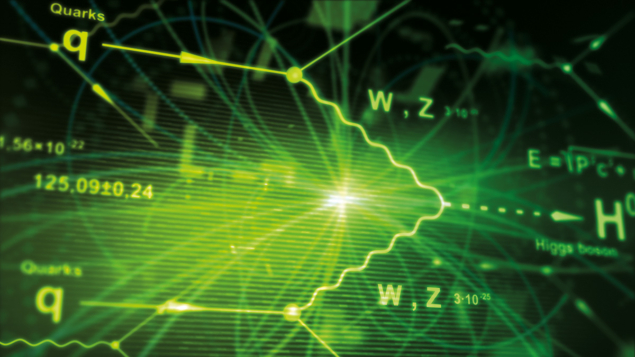Colliders are not just searches for new physics; they are general-purpose observatories of fundamental processes on the smallest scales. We need to start thinking of them as such, says Tevong You.

In no other field of science is the promise of revolutionary discovery the only standard by which future proposals are held. Yet in particle physics a narrative persists that the current lack of new physics beyond the Standard Model (SM) is putting the future of the field in doubt. This pessimism is misguided.
Take cosmology and astrophysics. These are fundamental sciences whose aim is nothing more than to better understand the objects within their remit. Telescopes and other instruments point at the universe at large, observing to ever higher precision, farther than ever before, in new, previously inaccessible regimes. The Gaia, JWST and LIGO instruments, which cost between $1–10 billion each, had clear scientific cases: to simply do better science.
Not once in ESA’s list of Gaia science objectives is dark matter or dark energy mentioned. Gaia’s scientific potential is fulfilled not by the promise of new physics discoveries but by improving precision astrometry, uncovering more of the known astrophysical objects and testing further the standard cosmological model. JWST is a success if it makes sharper observations and peers out farther than ever, regardless of whether it discovers new types of exotic phenomena or sees the same objects as before but better. LIGO was not considered a failure for having discovered gravitational-wave signals in agreement with Einstein’s general theory of relativity; nor is the future of gravitational-wave observatories in doubt as a consequence.
Particle physics is pushing the boundaries of our understanding in the other direction – looking inwards rather than outwards. The discovery of the Higgs boson, like that of gravitational waves, opens an entirely new window for probing our universe. Its agreement with the SM until now does nothing to diminish the need for a future Higgs observatory. Higgs aside, new elementary particle processes are continually being unveiled, from the long-predicted quantum scattering of light by light to complex interactions involving multiple bosons or fermions, most recently in the spectacular observation of four top quarks by ATLAS and CMS.
Gaia, JWST and LIGO had clear scientific cases: to simply do better science
Moreover, unlike cosmology and astrophysics, particle physics can do more than observe. It is an experimental science in the truest sense: set up the initial conditions, repeat the experiment, then analyse what comes out. The ability to directly manipulate the elementary building blocks of our world both complements and works symbiotically with astrophysical and cosmological observations. We need all eyes open on the universe to make progress; blinding one eye will not make the other sharper.
A better name can help
In this spirit, the CERN Future Circular Collider (FCC) is a bold and ambitious proposal for ensuring another thriving century of particle physics. As a multi- generational project, it would be our era’s cathedral to knowledge and wonder about the universe. However, the FCC cannot always remain a future collider if it ever becomes reality. When it comes to be renamed, the CERN International Particle Observatory would be more apt. This better reflects the role of colliders as general-purpose tools to do good science.

The International Particle Observatory will cost around $10 billion for a high-precision observatory, starting in the 2040s. A high-energy observatory would then follow in the 2070s. Is it worth it? Should we not be more concerned with climate change? Both questions must be put in the context of other areas of government spending and the value of fundamental physics. For example, an Olympic Games funded by a single nation, for a month’s worth of entertainment, costs about $10 billion. The same price tag shared across multiple countries over decades, to uncover fundamental knowledge that stands for all time, is a pittance by comparison. Furthermore, studies have shown that the economic return of investment in CERN outweighs the cost. We get back more than we put in.
The value of the enterprise itself benefits society in myriad indirect ways, which does not place it at odds with practical issues such as climate change. On the contrary, a new generation of particle-physics experiments stimulating cutting-edge engineering, technology, computing and data analysis, while fostering international collaboration and inspiring popular culture, creates the right conditions for tackling other problems. Particle physics helps humanity prosper in the long run, and has already played an indispensable role in creating our modern world.
Building an International Particle Observatory is a win–win proposition. It pays for itself, contributes to a better society, improves our understanding of the universe by orders of magnitude, and advances our voyage of exploration into the unknown. We just need to shift our narrative to one that emphasises the tremendous range of fundamental science to be done. A better name can help.








